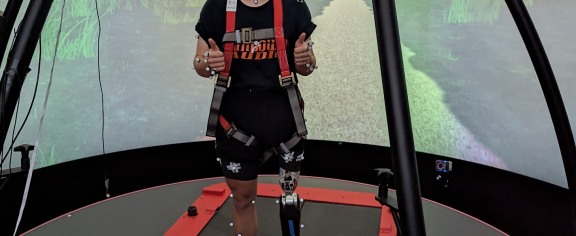2025-12-16
Studying how mice see has helped researchers discover unprecedented details about how individual brain cells communicate and work together to create a mental picture of the visual world.
2025-12-11
Ph.D. graduate Ziqi Zhang will join the Class of 2025 in walking across the stage, receiving diplomas, and graduating from Georgia Tech.
2025-11-24
By uniting expertise and resources, Georgia’s leading institutions are creating practical solutions to improve health outcomes across the state.
2025-11-04
Inspired by NASA technology, Georgia Tech alumni launched Deleon—a startup using biochemical data to advance preventive health, backed by CREATE-X.
2025-11-04
Georgia Tech’s Fall 2025 I2P Showcase will feature over 60 student prototypes tackling real-world challenges.
2025-10-16
Two years into a $49.5 million cancer-mapping project, researchers are opening the door to new kinds of tests that could alert doctors to multiple kinds of cancer when they’re most treatable.
2025-09-30
Born with a congenital limb disorder, Wallace wants to use his own experience to develop new prosthetics.
2025-09-24
Georgia Tech and Vanderbilt researchers have built the first lung-on-a-chip with a working immune system, a breakthrough with the potential to reshape how we study disease, move beyond animal testing, and administer lifesaving therapies.
2025-09-11
Nexus is Georgia Tech’s next-generation supercomputer, replacing the HIVE.
2025-09-16
Schmidt Sciences announces next cohort of early-to mid- career scientists to each receive up to $2.5 million to pursue novel research









